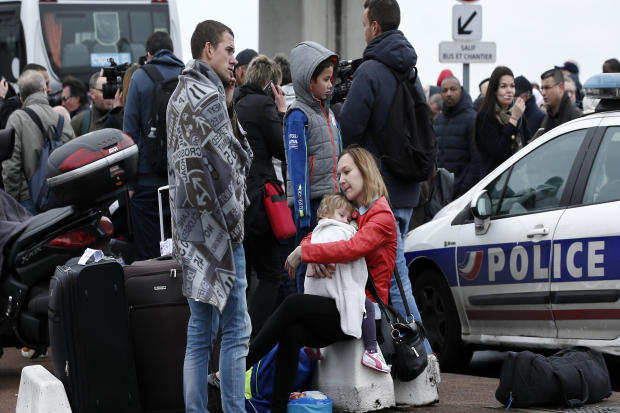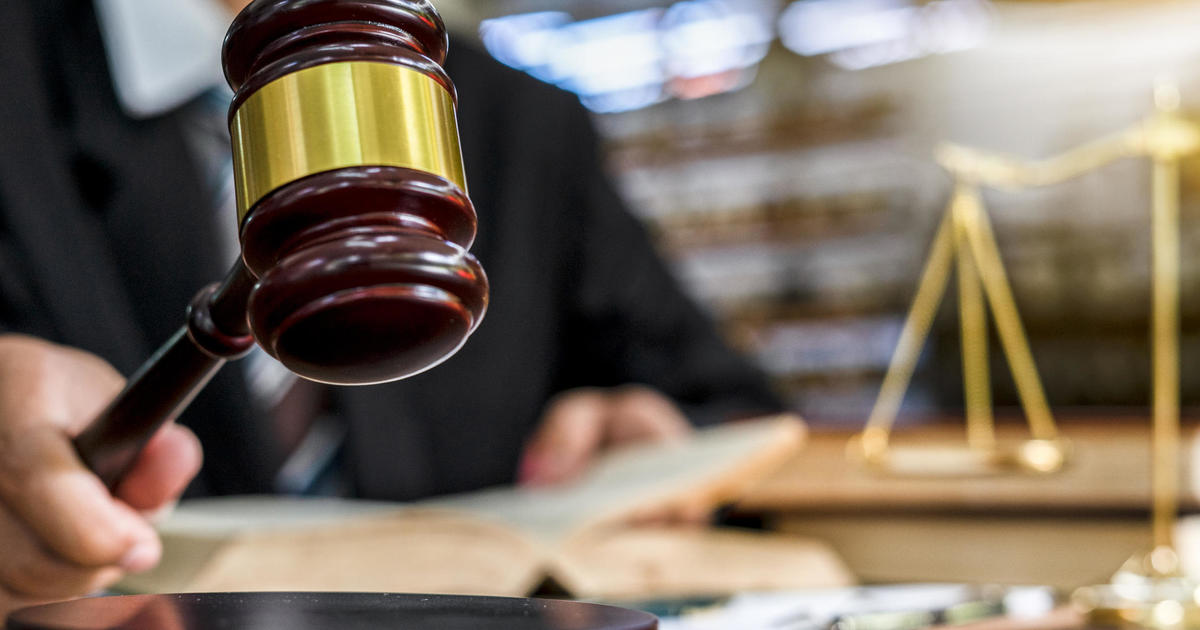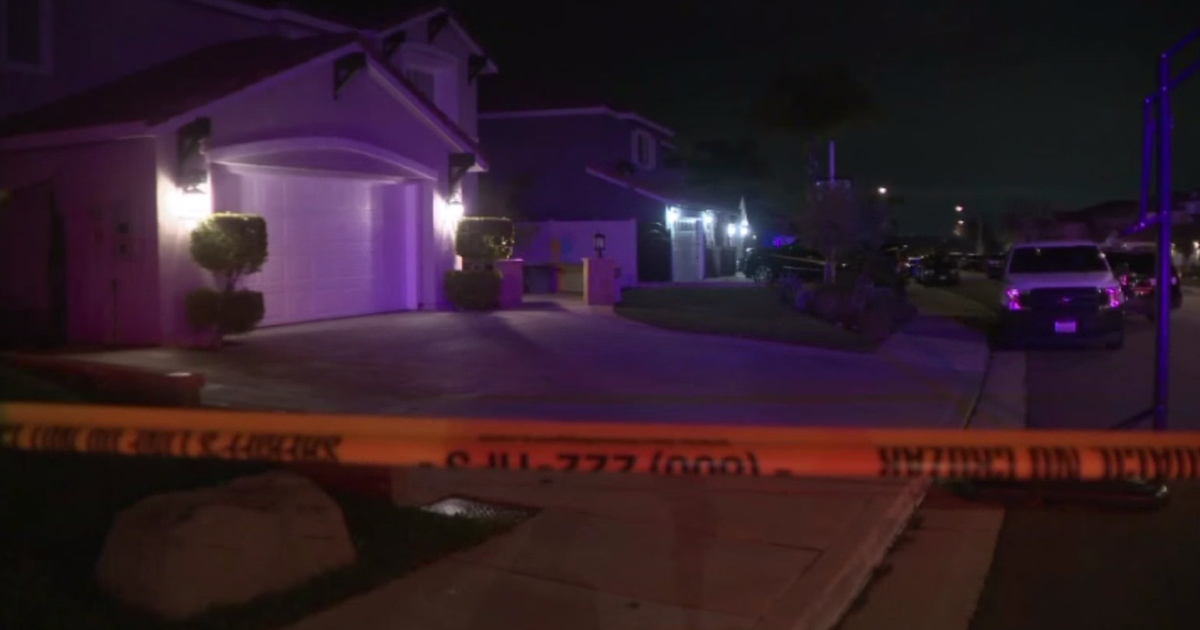Paris airport shooting: Official says attacker yelled "there will be deaths"
PARIS -- Paris prosecutor Francois Molins told a news conference Saturday that the man who attacked a soldier and was killed by her colleagues at Orly Airport yelled that he wanted to die in the name of Allah and “whatever happens, there will be deaths.”
Molins said the attacker held a pistol to the soldier’s head on Saturday morning, used her as a shield and succeeded in a struggle to wrest away her powerful military-grade assault rifle. He said the attacker apparently wanted to use it to shoot people in the busy Paris airport.
He says the attacker, identified by Molins as French-born Ziyed Ben Belgacem, also carried a container of gasoline that he tossed to the ground. A Quran was among the items later found on his body.
Molins said the French-born 39-year-old was flagged for suspected radicalism during a previous spell in prison.
A cousin of Belgacem’s is in custody after presenting himself to police, Molins said. The attacker’s father and brother are also in police custody for questioning - standard operating procedure in such cases.
The melee forced the airport’s busy terminals to close and evacuate and trapped hundreds of passengers aboard flights that had just landed.
Belgacem first fired bird shot at police officers during an early morning traffic stop before speeding away and heading for the airport south of Paris, authorities said.
There, in the public area of its South Terminal, the man wrestled the soldier who was on foot patrol. The French defense minister, Jean-Yves Le Drian, said the patrol’s other two members opened fire.
“Her two comrades thought it was necessary - and they were right - to open fire to protect her and especially to protect all the people who were around,” Le Drian said.
The attack further rattled France, which remains under a state of emergency after attacks over the past two years that have killed 235 people.
The shooting comes after a similar incident last month at the Louvre Museum in which an Egyptian man attacked soldiers guarding the site and was shot and wounded. It also comes just days before the first anniversary of attacks on the Brussels airport and subway that killed 32 people and wounded hundreds of others.
CBS News correspondent Jonathan Vigliotti reports there was increased security in Paris for Prince William and his wife, Kate, who were visiting the city. The trip was William’s first official visit to the French capital since his mother, Princess Diana, died there in 1997.
Witnesses described panicked bystanders fleeing, flights halting, traffic chaos and planes under lockdowns. French authorities, however, stressed that security planning - reinforced across the country in the wake of repeated attacks - worked well.
The soldier was “psychologically shocked” but unhurt by the “rapid and violent” assault, said Col. Benoit Brulon, a spokesman for the military force that patrols public sites in France. No other injuries were reported.
“We’d already registered our bags when we saw a soldier pointing his gun at the attacker who was holding another soldier hostage,” said Pascal Menniti, who was flying to the Dominican Republic.
Authorities said at least 3,000 people were evacuated from the airport. Hundreds of passengers also were confined for several hours aboard 13 flights that were blocked in landing areas, and 15 other flights were diverted to Paris’ other main airport, Charles de Gaulle, the Paris airport authority said.
The attacker’s motives were unknown. The anti-terrorism section of the Paris prosecutors’ office immediately took over the investigation. The prosecutors’ office said the attacker had a record of robbery and drug offenses.
He did not appear in a French government database of people considered potential threats to national security. But prosecutors said he had already crossed authorities’ radar for suspected Islamic extremism. His house was among scores searched in November 2015 in the immediate aftermath of suicide bomb-and-gun attacks that killed 130 people in Paris. Those searches targeted people with suspected radical leanings.
French President Francois Hollande said investigators will determine whether the attacker “had a terrorist plot behind him.” He ruled out any link between the attack and the upcoming two-round French presidential election in April and May, noting that France has been battling extremist threats for years.
About 90 minutes before the airport attack at 8:30 a.m. (4:30 a.m. EDT), the man was first stopped by a police patrol in northern Paris because he was driving too fast, police said. As he was showing his ID papers, the man pulled out a gun and fired bird shot at the three officers, injuring one of them in the face, police said.
Police fired back. The man fled in his car. That traffic stop at 6:50 a.m. was at Garges-les-Gonesse, north of Paris near Le Bourget airport. The man later abandoned that vehicle at Vitry, south of Paris, and stole another at gunpoint, police said. That car was later found at Orly Airport.
Orly is Paris’ second-biggest airport, behind Charles de Gaulle. It has both domestic and international flights, notably to destinations in Europe and Africa. The attack brought airport operations to a screeching halt.
Traffic was jammed near the airport and people wheeled suitcases down the road. Augustin de Romanet, president of the ADP airport authority, said passengers who were prevented from disembarking from flights were allowed off around noon, once a search of the airport was complete.
The airport’s South Terminal did not reopen until late afternoon.
A witness identified only as Dominque told BFM Television that the attacker held the soldier by the throat and held her arm and her weapon.
“We saw it was a serious situation, so we escaped,” he said. “We went down the stairs and right after we heard two gunshots.”
Taxi driver Youssef Mouhajra was picking up passengers at Orly when he heard shots, which he first thought were just a warning.
“We have become accustomed to this kind of warning, and to having the soldiers there,” he told The Associated Press.
Then he saw people fleeing the terminal.
“I told (the passengers) let’s get out of here,” he said. As he drove away, he saw soldiers and police rushing toward the airport.
The military patrol was part of France’s Sentinelle operation to protect sensitive sites after a string of deadly Islamic extremist attacks. The operation uses 7,500 service members, half deployed in the Paris region and half in the provinces.
Saturday was at least the fourth time that Sentinelle service members have been targeted since it started. It was set up after the deadly attack in January 2015 on the satirical magazine Charlie Hebdo in Paris and reinforced after the assaults that left 130 people dead in Paris on Nov. 13, 2015.




